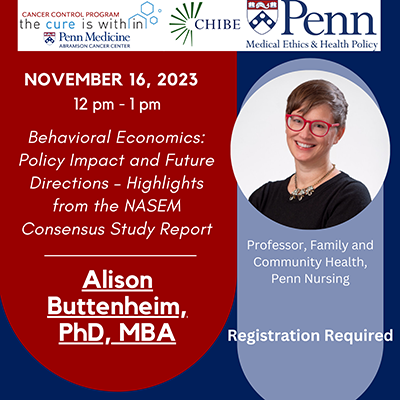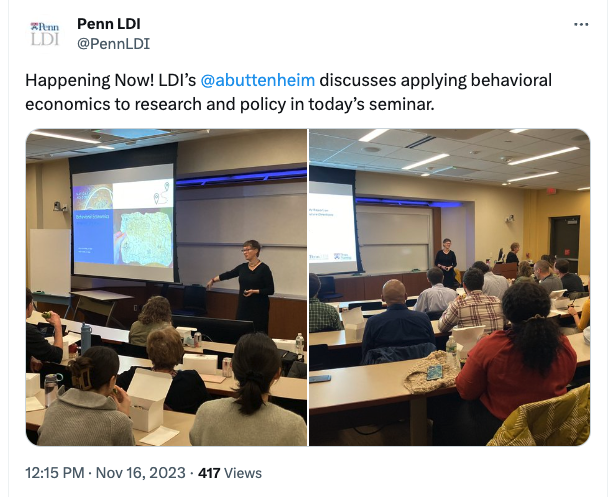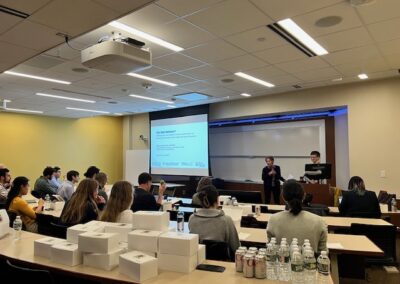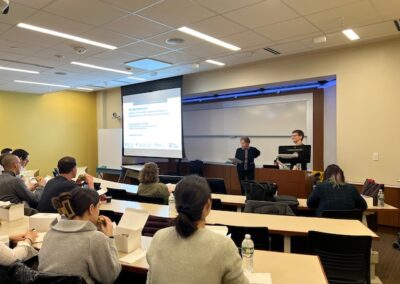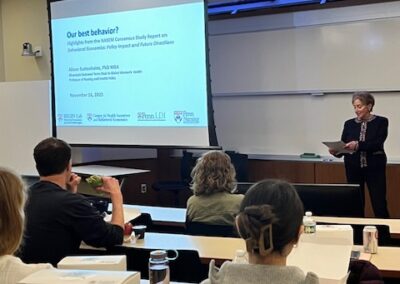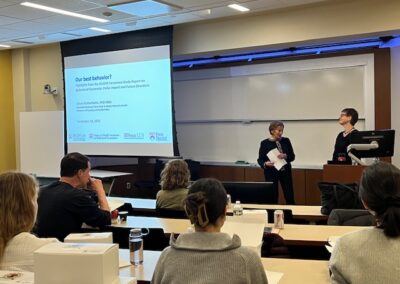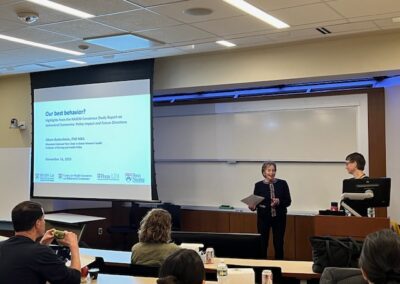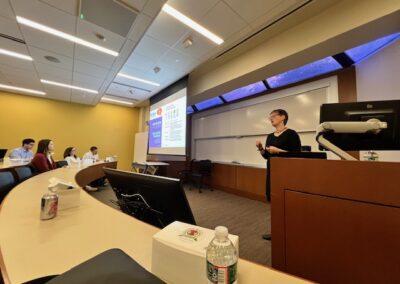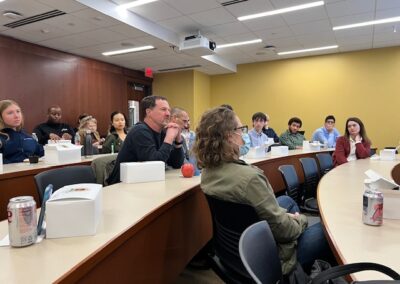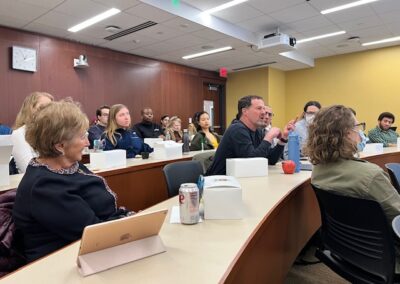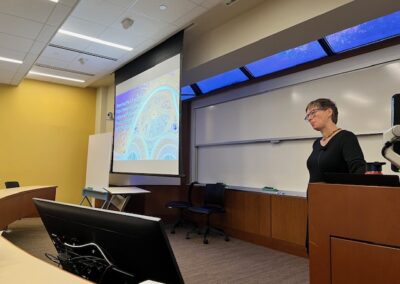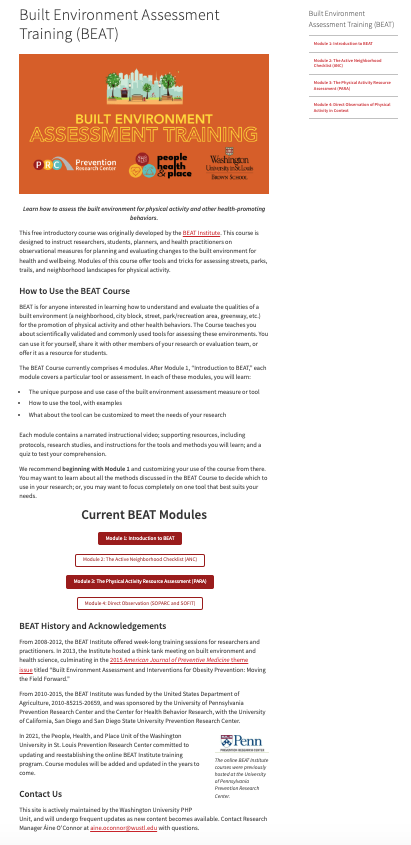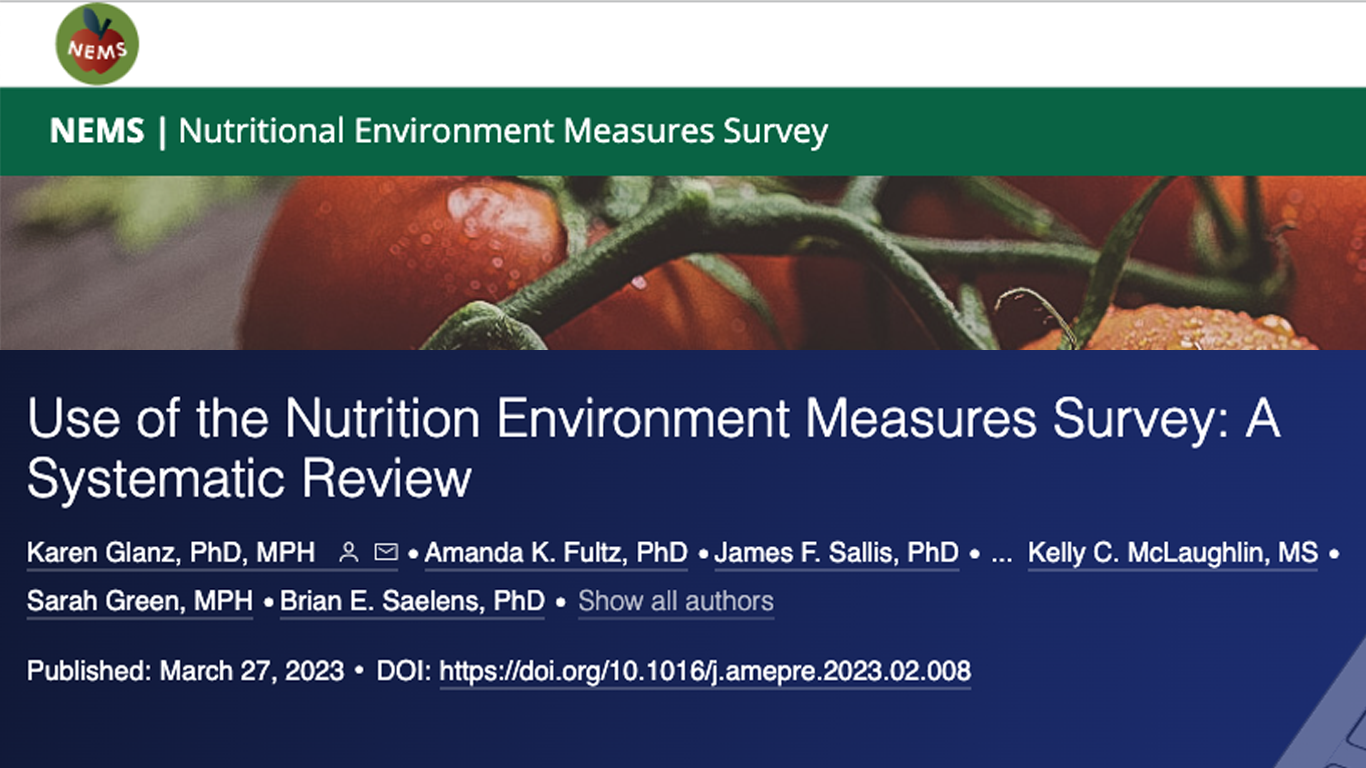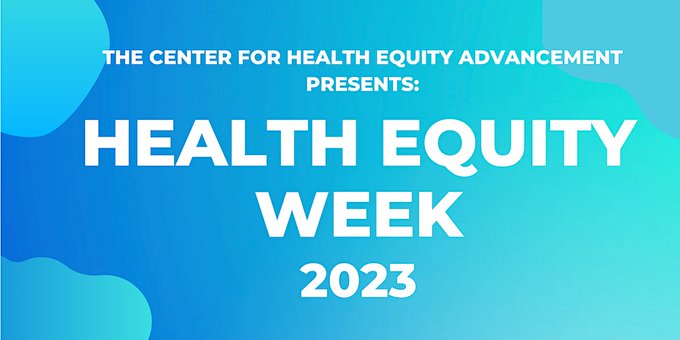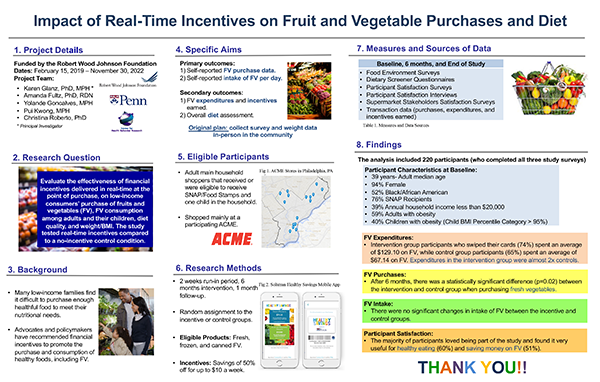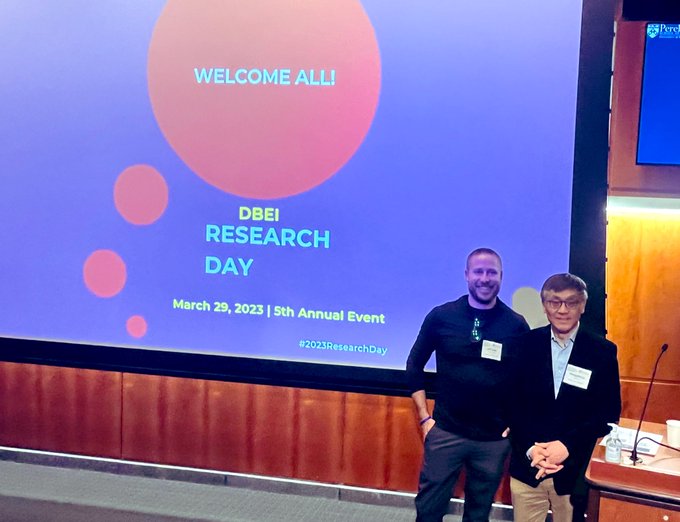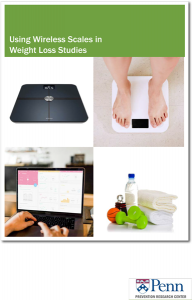Dec 14, 2023
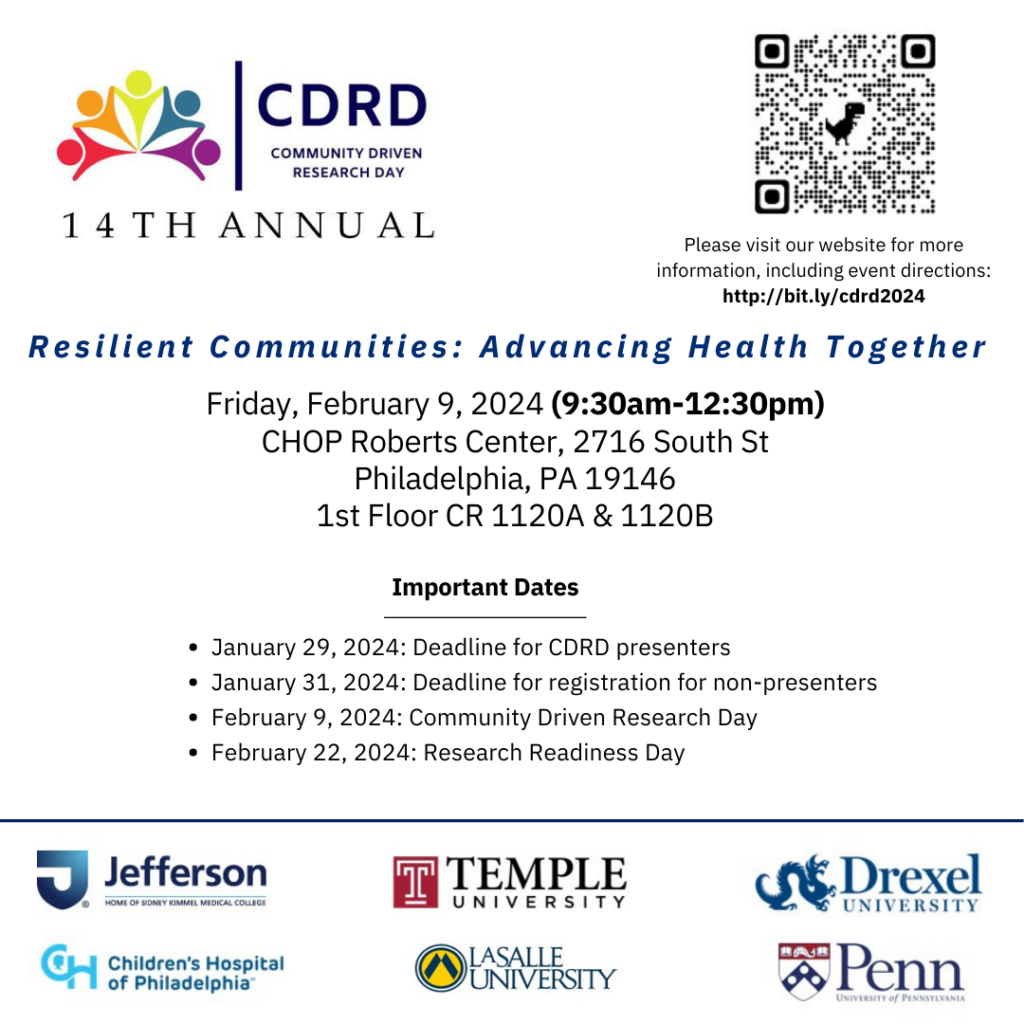
Community-Driven Research Day (CDRD) is a program that encourages collaboration between researchers and community-based organizations (CBOs)/community groups that have research questions they are interested in answering.
Through CDRD, Community-Based Organizations (CBOs) and community groups interested in developing partnerships to conduct research participate in an interactive rapid presentation that highlights their mission, goals, and major accomplishments and displays research questions they are interested in answering to health and equity for their community members.
The 2024 Community-Driven Research Day will be held on February 9, 2024 in Philadelphia. The event will open with a panel of past CDRD awardees and community-driven research experts presenting on effective community-academic collaborations. Following the panel discussion, CBOs and community groups will participate in an interactive poster session to highlight research questions of interest to researchers, public sector partners and others interested in community-academic partnerships.
The event is jointly sponsored by the following institutions: Children’s Hospital of Philadelphia, Drexel University, Temple University College of Public Health, La Salle University, Thomas Jefferson University, and the University of Pennsylvania.
We are committed to community-based participatory research, which includes the basic tenet that both community partners and research partners are involved in all phases of research, allowing community capacity and related opportunities to be developed and sustained. The focus of CDRD is about making connections, and the CDRD organizing committee is willing to help facilitate connections.
Small grants are awarded to promising community partner-researcher collaborations annually through a competitive submission process.
View the 2024 flyer
Presenter Registration
Non-Presenter Registration
Find more event details here
Dec 6, 2023
Karen Glanz, PhD, MPH, received two distinguished honors in the month of November. Dr. Glanz is the George A. Weiss University Professor, Professor of Epidemiology in the Perelman School of Medicine, Professor of Nursing in the School of Nursing, and Director of the Center for Health Behavior Research at the University of Pennsylvania. Now she can add Fellow of the College of Physicians of Philadelphia and two-time Best Female Scientists to her list of titles.
A LEGACY IN INK AND IMPACT
On November 17th, Dr. Glanz was joined by colleagues and guests at the College of Physicians of Philadelphia as she became a Fellow of the College of Physicians. This historic society, dating back to 1787, is dedicated to “better serving the public and lessening human misery.” Dr. Glanz’s signature now joins a legacy of medical luminaries, a testament to her exceptional contributions to the field.

Glanz joins many colleagues at Penn and in the Department of Biostatistics and Epidemiology who are fellows, including Drs. John Holmes, Kevin Johnson, Ann O’Sullivan, and Dean Sara Bachman of the School of Social Policy and Practice.
SHINING A LIGHT ON WOMEN IN SCIENCE
Dr. Glanz’s inclusion in Research.com’s ranking of Best Female Scientists 2023 is equally inspiring. Glanz was ranked as one of the Best Female Scientists for the 2nd year in a row!

The full details on their ranking process can be found on their website, where Dr. Glanz was ranked 546 out of 166,880 female scientists. Sixteen women at the University of Pennsylvania are also on the list.
| The 2nd edition of Research.com ranking of top female scientists in the world is based on data acquired from a wide range of bibliometric sources including OpenAlex and CrossRef on 21-12-2022. Position in the ranking is based on a scientist’s overall H-index.
This ranking of best female scientists in the world comprises of leading female scientists from all key areas of science. It was based on a detailed analysis of 166,880 profiles. |
Health Behavior: Theory, Research, and Practice, the book for which Dr. Glanz is the lead Editor, has been cited 11,170 times (3rd edition, 2008). This speaks volumes about the book’s impact, which plays a major role in shaping the way we approach understanding health-related behavior and empowering individuals to make informed choices about their well-being. See the list of some of her most-cited publications at the bottom of her profile page on Research.com.
These honors are not just accolades; they are testaments to Dr. Glanz’s many productive years of work and her unwavering dedication to improving health through research.
Oct 2, 2023
The Community Engagement and Research Core (CEAR) at the University of Pennsylvania has awarded pilot grant funding for 2023-2024. Two projects were selected to receive funding through the CEAR Pilot Grant Program, and one project was selected to receive funding through Community Driven Research Day and will be co-funded with Penn Center for Public Health (formally Center for Public Health Initiatives, CPHI)

CEAR pilot grant recipients:
Screening for Nutrition in Oncology Settings for Underserved Rural Communities with Food Insecurity and Social Determinants of Health Challenges
- Tamara Cadet, PhD, MPH (Associate Professor, Social Policy & Practice)
Health Care Use Among Patients Newly Insured via Hospital-Based Insurance Linkage
- Elinore Kaufman, MD, MSHP (Assistant Professor, Surgery)
The Community Engagement and Research (CEAR) Core of the Clinical and Translational Science Award (CTSA) at the University of Pennsylvania has made pilot grant funding available for research with public and community health relevance since 2014.

CDRD pilot grant recipient:
The Preparation and Pilot Implementation of HOPE-ish: A Mental Health Awareness Program
Community-Driven Research Day (CDRD) is a program that encourages collaboration between researchers and community-based organizations (CBOs)/community groups that have research questions they are interested in answering.





